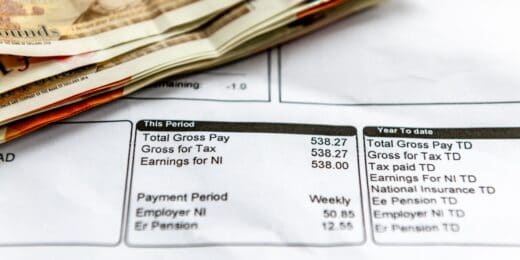HMRC is increasing its interest rates in line with the Bank of England’s latest rate hike. We explain why the rate is changing, the new rates you’ve got to be aware of, and what to do if you’re struggling to keep up with your tax payments.
HM Revenue & Customs (HMRC) has announced it is increasing interest rates on both tax repayments and late payments for customers.
HMRC interest rates on tax payments are set into law through legislation. However, they’re also linked to the Bank of England (BoE) base interest rate. The UK Government’s tax body administers two separate interest rates: a late payment interest rate and a repayment interest rate.
The late payment interest rate is designed to encourage customers to make prompt payments to HMRC for any tax owed. By charging interest on late payments, HMRC’s intention is to make things fairer for all of the Self Assessment and business customers who pay their tax bills on time.
At present, the late payment interest rate is set at the BoE base rate plus 2.5%.
Next, you’ve got HMRC’s repayment interest rate. The repayment interest rate is designed to compensate taxpayers fairly when they overpay or pay early because they’re unnecessarily losing liquidity.
The current repayment interest rate is set at the base rate minus 1%. As part of that rate, it’s important to note there’s a lower limit ‘minimum floor’ of 0.5%.
Moving forward, both of these interest levels are being increased in line with the BoE interest rates. To help you prepare for these changes, we’ll briefly explain what the new interest rates are – and what you can do if you’re unable to keep up with your tax payments.
What are the new interest rates?
In August 2023, the Bank of England Monetary Policy Committee voted to increase the BoE base rate to 5.25%. As of April 2024, this rate remains unchanged. Since HMRC’s interest rates are partially set by this base rate, the increase means that HMRC’s current late payment and repayment interest rates are:
- late payment interest rate — 7.75%
- repayment interest rate — 4.25%
These are the rates that will apply to your tax account for the time being, but they are likely to change again at some point in the near future.
- It’s also worth noting that HMRC’s interest rates apply to Income Tax, National Insurance contributions and Capital Gains Tax — as well as Corporation Tax, Inheritance Tax, Capital Transfer Tax, and Estate Duty.
What happens if you can’t pay your tax bill on time?
If you’re struggling to make your tax payments on time to HMRC, it’s important to bear in mind that there is support available.
HMRC offers a self-serve Time to Pay facility that enables you to input information and create a longer-term repayment plan so that you can pay your outstanding tax owed in instalments.
To create an instalment plan, you must be an existing Self Assessment customer. You must also:
- Have filed your latest tax return
- Owe less than £30,000
- Be able to pay in full within 12 months
If you’re a Self Assessment customer and you owe more than £30,000 in payments, you might be able to use the Time to Pay portal. But you’ll need to call the Self Assessment Payment Helpline on 0300 200 3822 to discuss your options.
As part of the Time to Pay self-serve portal, you’ll be asked to log into your Self Assessment account using Government Gateway, and input information about your situation.
This includes:
- The relevant reference number for the tax you can’t pay (like your Unique Tax Reference number)
- Your VAT registration number (if relevant)
- Your bank account details
- Details of any previous payments you’ve missed
After submitting this information, HMRC will then ask you for some extra details on your desired arrangement before making an offer.
You can find out more about HMRC’s Time to Pay facility on the GOV.UK website.
The bottom line
If you owe tax to HMRC or are awaiting repayments, you must understand HMRC’s interest rates have changed.
More important still, you need to plan accordingly. That means budgeting for future repayments or even arranging a pay-by-instalment plan via HMRC’s Time to Pay scheme.
Want to learn more about paying tax or company filing obligations? Check out the Rapid Formations Blog.
Please note that the information provided in this article is for general informational purposes only and does not constitute legal, tax, or professional advice. While our aim is that the content is accurate and up to date, it should not be relied upon as a substitute for tailored advice from qualified professionals. We strongly recommend that you seek independent legal and tax advice specific to your circumstances before acting on any information contained in this article. We accept no responsibility or liability for any loss or damage that may result from your reliance on the information provided in this article. Use of the information contained in this article is entirely at your own risk.








Join The Discussion